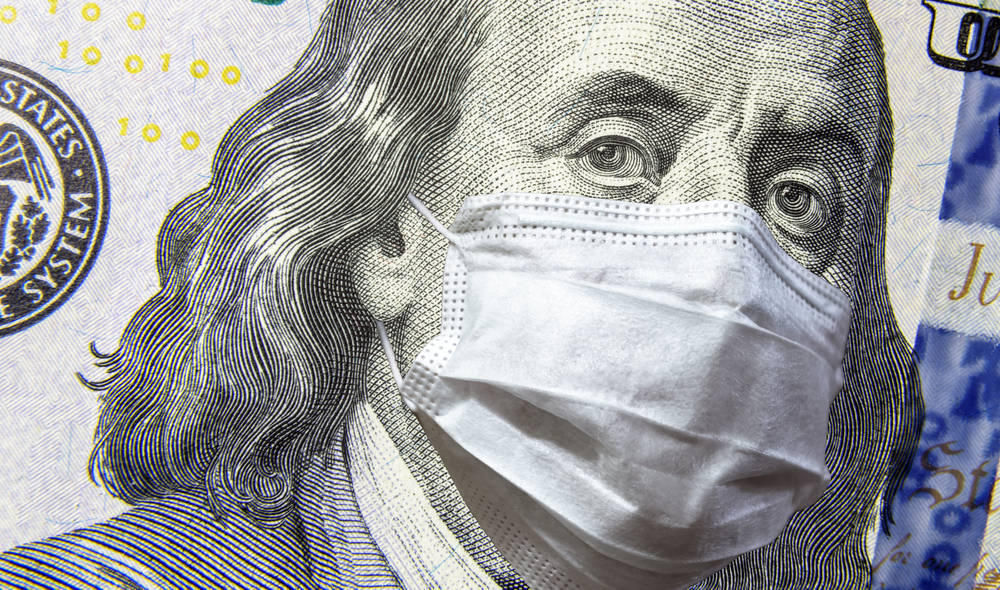Tech's Big Names Start To Disclose Possible Bottom-line Coronavirus Impacts

Warnings to investors from Dell, DocuSign, Cloudera and MongoDB reveal not all are completely terrified
Coronavirus has started to become a staple of the Form 10-K corporate risk disclosure documents filed by public technology companies.
Public companies in the United States file an annual “Form 10-k”, which is best understood as the warts-and-all on-the-record companion to companies shinier and glossier annual reports. Form 10-Ks always detail risk factors a public company feels it must disclose to ensure investors are properly informed. The disclosures are sometimes blunt, but generally don’t diverge too far from boilerplate statements about market conditions and known issues a company is already facing.
In fact, several recent 10-Ks filed late last week by enterprise tech companies familiar to Reg show the impact of the COVID-19 pandemic has become something worthy of disclosure.
DocuSign, which basically offers social-distancing as-a-service with its digital document-signing software and “Agreement Cloud”, popped this into its 10-K.
MongoDB slipped [PDF] in a bullet point about potential problems caused by quarantine, plus the observation that “we expect the rapidly evolving COVID-19 pandemic will likely impact our sales pipeline and bookings.

Dell, VMware withdraw fiscal 2021 guidance amid humming global supply chain and remote work boom
READ MORE"In addition, COVID-19 could adversely affect workforces, customers, economies and financial markets globally, potentially leading to an economic downturn. While it is not possible at this time to predict the duration and extent of the impact that COVID-19 could have on worldwide economic activity and our business in particular, the continued spread of COVID-19 and the measures taken by governments, businesses and other organizations in response to COVID-19 could materially and adversely impact our business, financial condition or results of operations."
But it’s not all gloom.
Cloudera, which disclosed all sorts of risks related to its merger with Hortonworks and competitive threats, popped this into its 10-K:
And Dell’s mentions of coronavirus don’t much beyond adding it to a long list of risks that comprises “raw material availability, manufacturing capacity, labor shortages, public health issues, such as the outbreak of the coronavirus disease 2019 (COVID-19), tariffs, trade disputes and protectionist measures, natural catastrophes or the effects of climate change (such as extreme weather conditions, sea level rise, drought, flooding and wildfires), and significant changes in the financial condition of Dell Technologies’ suppliers.” ®
Sponsored: Practical tips for Office 365 tenant-to-tenant migration
From Chip War To Cloud War: The Next Frontier In Global Tech Competition
The global chip war, characterized by intense competition among nations and corporations for supremacy in semiconductor ... Read more
The High Stakes Of Tech Regulation: Security Risks And Market Dynamics
The influence of tech giants in the global economy continues to grow, raising crucial questions about how to balance sec... Read more
The Tyranny Of Instagram Interiors: Why It's Time To Break Free From Algorithm-Driven Aesthetics
Instagram has become a dominant force in shaping interior design trends, offering a seemingly endless stream of inspirat... Read more
The Data Crunch In AI: Strategies For Sustainability
Exploring solutions to the imminent exhaustion of internet data for AI training.As the artificial intelligence (AI) indu... Read more
Google Abandons Four-Year Effort To Remove Cookies From Chrome Browser
After four years of dedicated effort, Google has decided to abandon its plan to remove third-party cookies from its Chro... Read more
LinkedIn Embraces AI And Gamification To Drive User Engagement And Revenue
In an effort to tackle slowing revenue growth and enhance user engagement, LinkedIn is turning to artificial intelligenc... Read more

